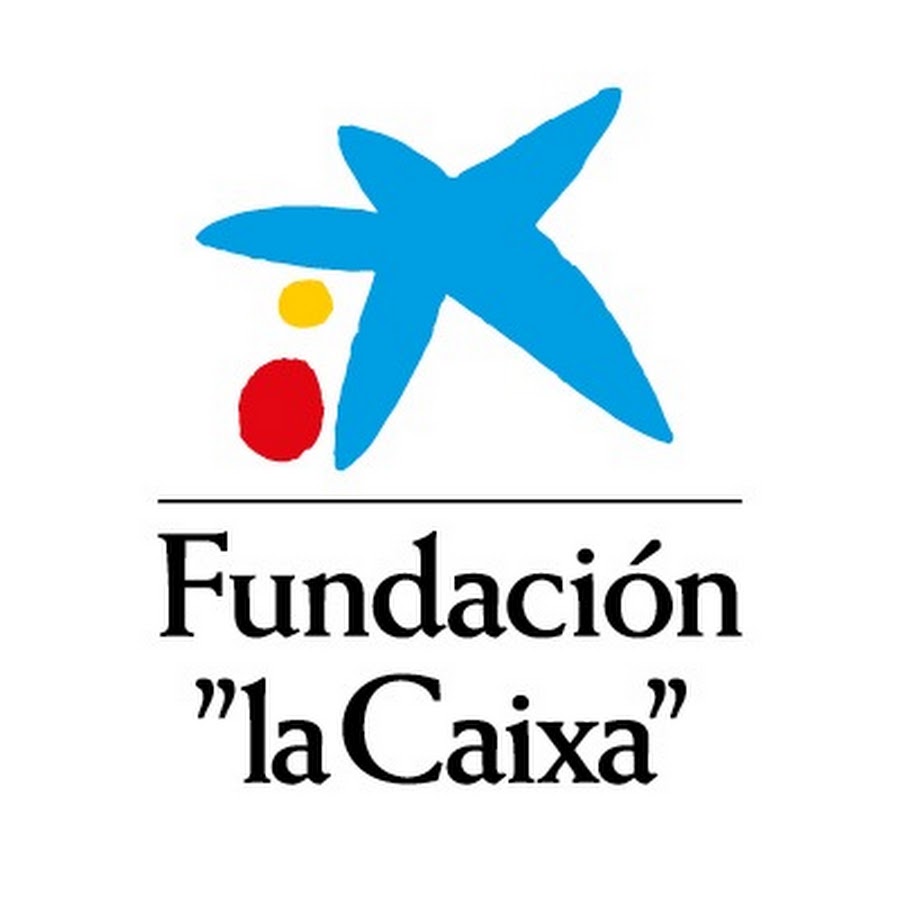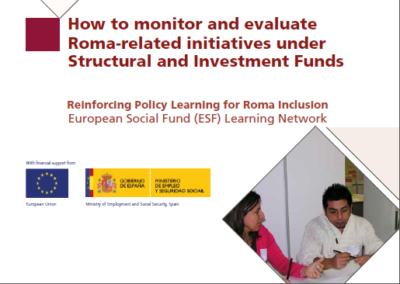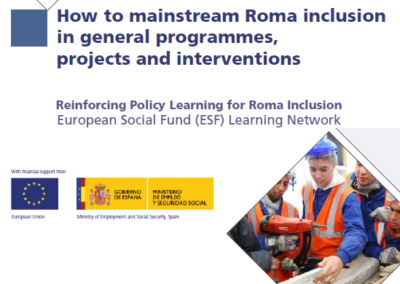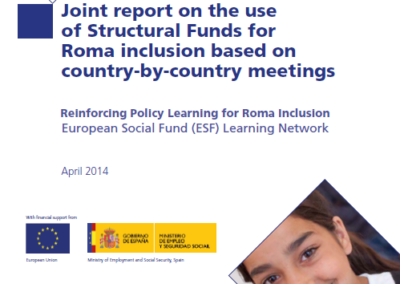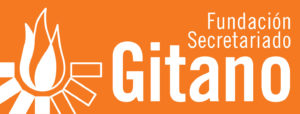From February 2013 to February 2015, the work of the EURoma Network was complemented by the work of the European Social Fund (ESF) Learning Network “Reinforcing policy learning for Roma inclusion” (also referred to as ‘EURoma+ Network’ or ‘ESF Roma Inclusion Network’). The EURoma+ Network focused on the planning process of the 2014-2020 programming period and involved eight EURoma partner countries (Bulgaria, Czech Republic, Greece, Hungary, Italy, Romania, Slovak Republic and Spain).
Throughout its two years of operation, the activities of the Network aimed at maximazing the impact of the Structural Funds for Roma inclusion by seeking higher political commitment for the planning process of the 2014-2020 programming period and making sure that the lessons learnt during the 2007-2013 programming period were incorporated in the new programming period.
Partners
The EURoma+ Network was led, and co-financed, by the Spanish ESF Managing Authority (Ministry of Employment and Social Security) and it gathered the Heads of the ESF Managing Authorities and National Roma Contact Points from 8 of the EURoma Network partner countries (Bulgaria, Czech Republic, Greece, Hungary, Italy, Romania, Slovak Republic and Spain).
The Network was co-funded by the European Commission who was also actively involved it the activities of the Network.
Fundación Secretariado Gitano (FSG) acted as the Technical Secretariat.
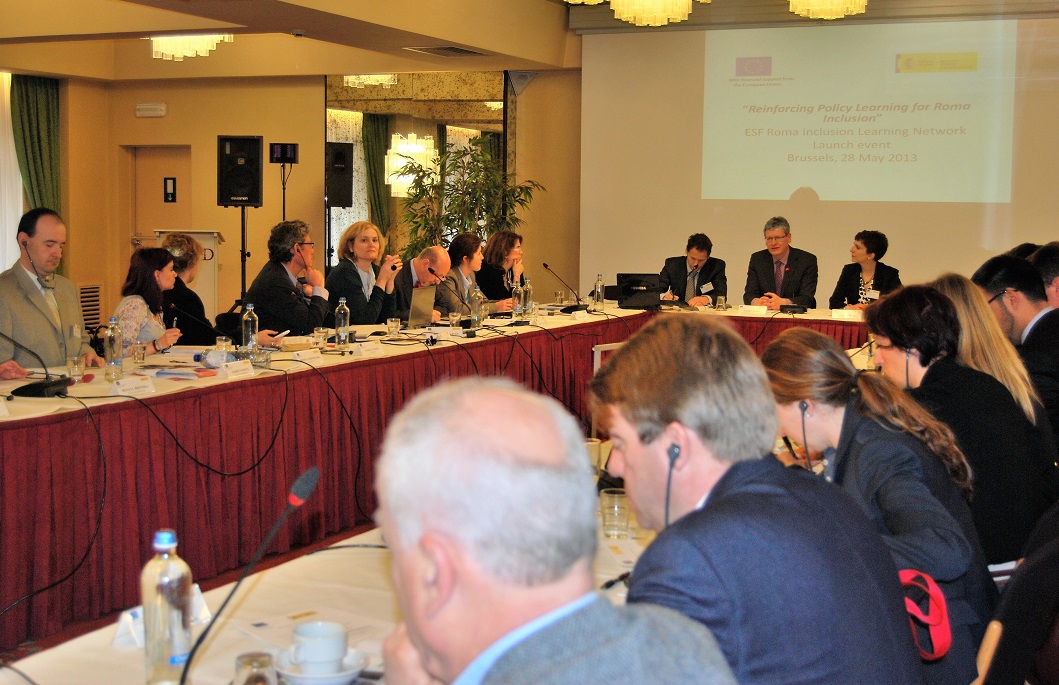
The network gathered the Heads of the ESF Managing Authorities and National Roma Contact Points from Bulgaria, Czech Republic, Greece, Hungary, Italy, Romania, Slovak Republic and Spain.
Lines of action
To achieve its goal, the Network developed a number of activities related to four lines of intervention:
Steering Group meetings
gathering the Network partners, together with European Commission representatives and other relevant stakeholders.
Two meetings were organised, one at the beginning and another one at the end of the project. The Network’s launch event, organised in May 2013 in Brussels, aimed to confirm the commitment of the Network partners and build a strong and sustainable partnership and to achieve a consensus regarding the key elements of the Network. It counted on the presence of European Commissioner for Employment, Social Affairs and Inclusion László Andor, a proof of the commitment of the European Commission.
The closing conference, held in January 2015 in Brussels, was hosted by the European Economic and Social Committee (EESC) and took stock and reviewed the results and learnings of the two years of activity, in particular, the impact of the project activities on the ESI Funds planning process of the participating Member States.
Support to Member States to address the shortcomings and difficulties
faced during the implementation phase of the 2007-2013 programming period and the planning phase of the 2014-2020 period.
The main tool used to support this process was an analysis of the baseline situation in each of the eight partner countries was carried out, through the organisation of meetings with a small number of key players in each of the countries. The analysis aimed to take stock of the use made of Structural Funds for Roma inclusion during the 2007-2013 programming period and analyse the plans for the 2014-2020 programming period in each of them.
Building upon the information gathered in the context of the meetings, as well as information and data collected through desk-research, a Joint report on the use of Structural Funds for Roma inclusion based on country-by-country meetings was elaborated. This report aims to identify the lessons learnt in the 2007-2013 programming period in order to transform them into policy messages to be transferred to the 2014-2020 period.
Organisation of mutual learning initiatives
notably transnational workshops on two areas identified during the phase of analysis of the situation as challenging and in which further progress would be needed and the exchange of information and mutual learning between participating countries could be beneficial:
Drafting of mutual learning and reference material
Thematic handbooks were elaborated on each of the two topics addressed in the mutual learning initiatives:
- How to monitor and evaluate Roma-related initiatives under Structural and Investment Funds
- How to mainstream Roma inclusion in general programmes, projects and interventions
They aimed to serve as a practical resource for Managing Authorities, Intermediate Bodies and other relevant stakeholders involved in the planning, implementation, monitoring and evaluation of ESI Funds with a view to helping them address the challenges they face in these areas. They built upon the analysis of the use made of EU Structural Funds for Roma inclusion during the 2007-2013 programming period in the countries involved in the Network (in the context of the EURoma and the EURoma + Networks), the identification of the potential progress in the Regulations for the 2014-2020 programming period and the analysis of relevant secondary sources. They were also been enriched with the ideas and debates in the transnational mutual learning workshops.
Contribution to ESI Funds planning process
During its two years of activity, the EURoma+ Network focused on achieving its goal to have an impact on the planning process of the new European Structural and Investment Funds programming period in the partner countries, which led to a qualitative change. Certain progress was perceived in some of the areas, including as regards the approaches used (for example concerning the inclusion of Roma population in the Operational Programmes) and the awareness of the importance of applying an integrated approach (both as regards the interventions as well as the combination of different funds), as well as a clear trend to move towards projects with an increased length and financial allocation, which in principle should have a higher potential to achieve a real social change. The challenge remains how to put these positive aspects into practice in the implementation phase.
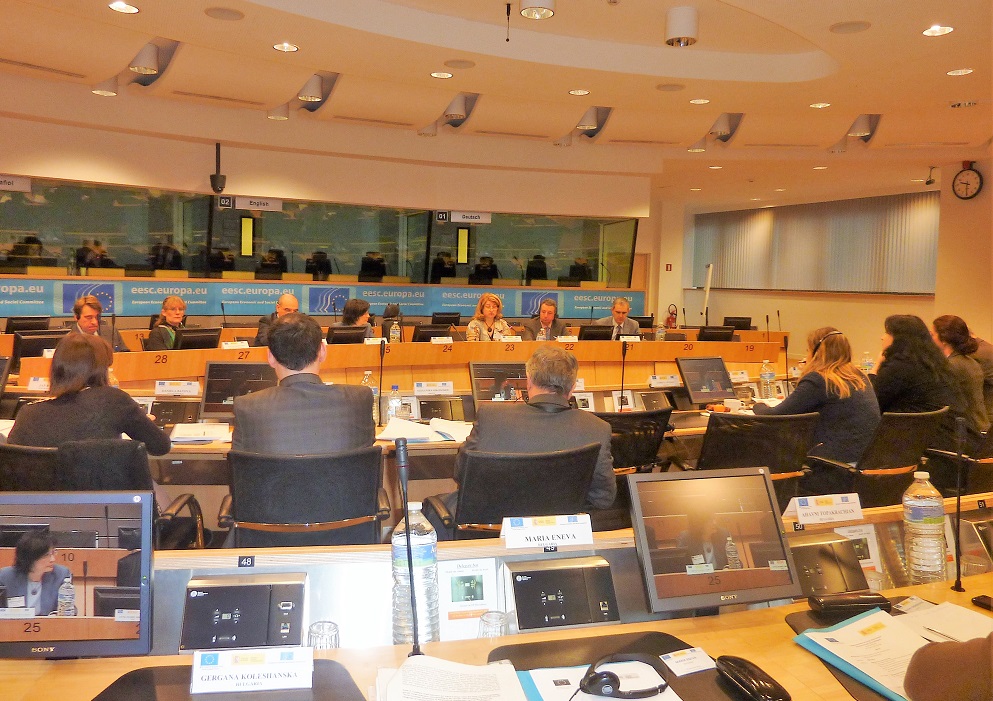
EURoma+ Network final conference at the European Economic and Social Committee.
Products
In the framework of its activities, the Network developed a number of resources aimed at tacking stock of the use made of Structural Funds for Roma inclusion in the 2007-2013 programming period and to explore ways for further action and improvement in the 2014-2020 period.
Funded by:



